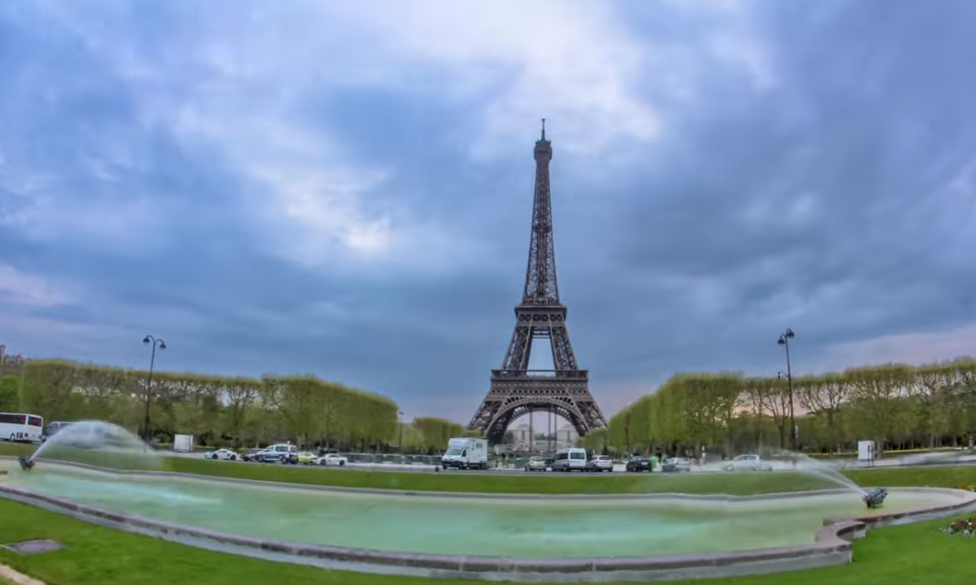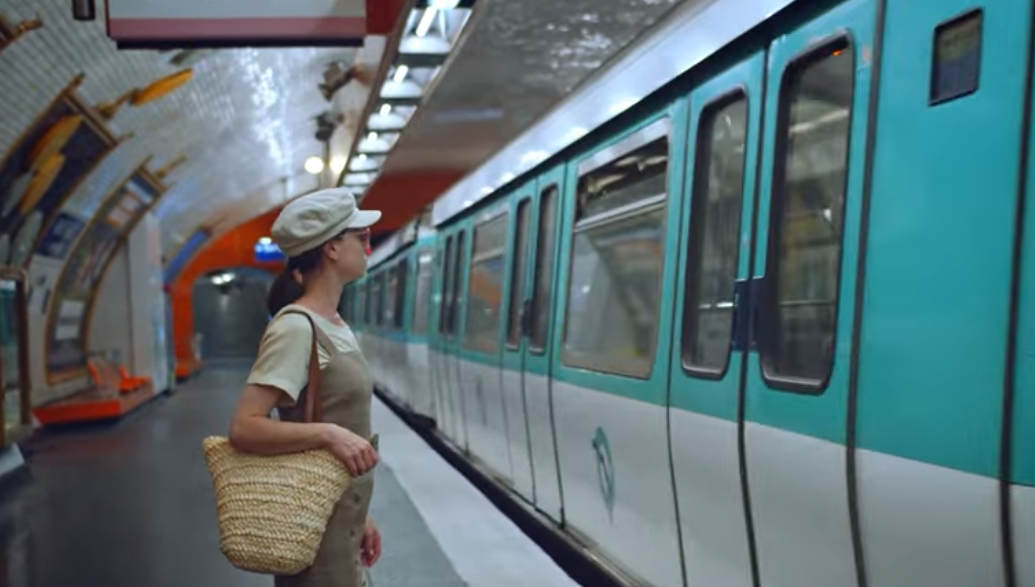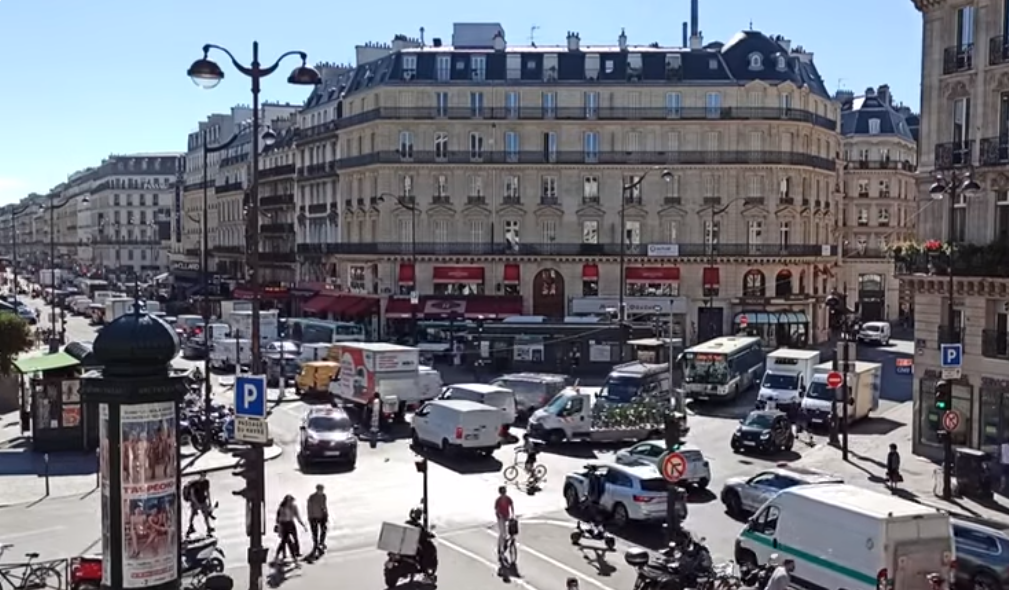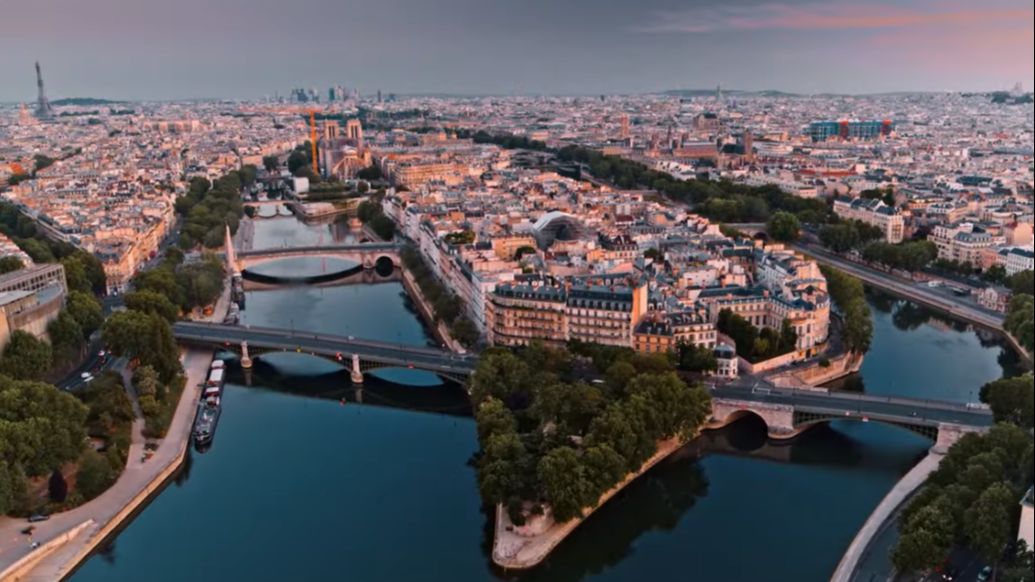Europe is known as one of the most beautiful continents in the world with diverse natural scenery across four distinct seasons. Magnificent structures and a long-standing history. Among them, France stands out as one of the representative countries of Europe. When mentioning France, people immediately think of its renowned romance, politeness, and nobility. It is also the cradle that has produced countless cultural figures, great individuals who have influenced time.

The heart of France is the splendid capital Paris, with its excellent planning and many famous landmarks such as the Eiffel Tower, the Arc de Triomphe, and the southern part of France with its wonderful sunny coastal cities and vast countryside filled with flowers and trees. In the eyes of foreigners, France is truly a wonderful place to live. The capital of France is dubbed the City of Light. However, despite a sophisticated Paris rich in cultural history, some tourists encounter "Paris syndrome" with symptoms of nausea and hallucinations.
Paris is a miniature representation of France, glamorous on the outside but with many internal issues. Paris syndrome occurs when tourists have too many expectations before their trip, causing their actual experiences to fall short of their hopes. A recent study by Radical Storage shows that many tourists have had thoughts and feelings of disappointment upon arriving in the capital of France, temporarily referred to as Paris syndrome. This report states, "Paris is always rated higher than reality, and tourists always have very high expectations. The fairy-tale and magical image of Paris depicted in literature and cinema is vastly different from the busy and crowded reality of this city."
The alleys reek of urine, the streets are littered with dog feces, and the expensive subway is overcrowded—these are the lesser-known aspects of the City of Light. The City of Light, the fashion capital of the world, the most beautiful city on Earth are titles still bestowed upon Paris. However, the alleys in Paris are filled with the smell of urine, while the picturesque cobblestone streets are strewn with dog waste. Even underground, where the subway stations are located, one can still smell urine everywhere, which is also where many homeless people, mostly of African descent, linger around, lurking to pickpocket and sleep in a very shabby manner.
Perhaps the residents of the capital have become accustomed to this, but for tourists, it is indeed a nightmare, especially when it comes to the issue of pickpocketing; you must be extremely careful when visiting Paris. Thieves here have many tricks to steal items; one common tactic is to distract tourists by pretending to be lost while asking for directions, then taking the opportunity to pickpocket when the victim is not paying attention. Many thieves even operate in groups with scenarios that tourists do not expect; sadly, those who tarnish the image of France are not native French but immigrants.

In France, there are many immigrants, mainly from Africa, which makes the social landscape quite chaotic, and tourists are particularly frightened by this phenomenon. Losing money is one thing, but losing important documents like visas and passports is truly a nightmare, as they will face many troubles with immigration while being in a foreign land. Another disappointing aspect of Paris is that everything is expensive; like all major cities in the world such as New York, Tokyo, and Moscow, prices here are quite high compared to the global average, except for bread and the types of wine displayed on the bottom shelf in supermarkets—nothing in Paris can be called cheap.
However, in some bars, there are happy hours and some cheap beers for customers to drink all night; the costs of renting apartments, air conditioning, and various fruits will make you think twice before reaching for your wallet. To rent an apartment in Paris, you must prove that you have more money than the rent and need a guarantor in case of emergencies. Not to mention that landlords are often very meticulous in choosing tenants, regardless of how poor the apartment may be; some landlords prefer to rent to wealthy students, while others prefer young working couples; no one wants to rent to a fresh graduate intern.
You may encounter scenes of drunken people on the streets quite commonly in parks, by the Seine River, on benches, or on bridges, where you can freely carry a bottle to drink. If you forget to bring a bottle opener, you can easily ask someone nearby. The subway is indeed an unforgettable experience, with most tourists not wanting to try it again; besides the overwhelming smell of urine everywhere, you will also witness the most chaotic pushing and shoving, especially during rush hour. The so-called elegant politeness of the French is hard to find; you will see that at times people can be quite rude, not bothering to give up their seats for the elderly, women, or children.

The subway in Paris operates on a survival-of-the-fittest basis; initially, you may try to be polite, at least not to annoy others. Later, you will always look for ways to find an empty seat if you do not want to be pushed and jostled by a rushing crowd on the subway. Not everyone speaks English, and French has many words quite similar to English, leading many tourists to believe that many Parisians can speak English, given that many foreigners come every year.
In reality, most Parisians only use French, especially in important transactions like opening a bank account. However, they will respond in English if your French is too limited. Yet, you will notice that France has a characteristic of Western countries, which is the issue of racism; there are too many foreigners living here, from Africans to Arabs, Asians, and of course, including Vietnamese people.
Most people are respectful, but deep down, white French people still consider themselves a superior class compared to immigrants. They have some degree of discrimination, even towards tourists. France has colonized many countries around the world in the past, so their inherent superiority complex is quite understandable.

This discrimination occurs between Parisians and those who do not live in Paris anymore. Here, be prepared for a mindset of regional and class discrimination. A 2014 study conducted by a magazine ranked Paris fourth in the category of unfriendly cities. Additionally, a 2020 study by CEO World magazine labeled Paris as the rudest city in Europe. A 2021 survey by Internation, an organization specializing in supporting resettlement, concluded that "Paris is the third least friendly city for foreigners in Europe."
In popular culture, Paris today is no longer the France of yesteryear. A survey by Radical Storage also indicated that due to excessive expectations and the romantic beauty of Paris depicted in films, many first-time visitors feel extremely disappointed, experiencing shock and disappointment at the stark contrast to their imagination, leading many tourists to exhibit symptoms such as anxiety, dizziness, and sweating. Radical Storage analyzed the evaluations of 140,000 guests about the 20 largest tourist cities in the world, and Paris topped the list of destinations that are exaggerated and disappointing. Following Paris are Hong Kong, China, Seoul, Bangkok, and Singapore.
Conversely, the top destinations that exceeded tourists' expectations include Stockholm, Dubai, Cape Town, Amsterdam, and Kuala Lumpur. Perhaps the capital of Sweden is not as romantic in the media as Paris, and therefore tourists have lower expectations when visiting this Nordic city, or tourists are simply overwhelmed by the rich historical value, simple beauty, or the wonderful restaurants here. This is not the first time tourists have rated Paris as an overly hyped destination. In May 2021, Euronews surveyed 50,000 tourists on social media, and many people felt that Paris did not meet their expectations. With a population of just under 3 million before the COVID-19 pandemic, this city welcomed 20 to 30 million visitors each year, causing tourist attractions to always be crowded.
According to Writers in 2009, a survey of 2,400 users of the Trip Advisor website also showed that Paris is a city rated too highly compared to reality. Tourists complained that the splendid capital of France is less friendly and more expensive than expected. For example, Japan has a very orderly and polite culture, while Parisians sometimes look down on even those French who do not live in Paris. Do tourists visiting other cities, such as Venice, New York, or Beijing, experience a similar feeling of "Paris syndrome"?
Paris syndrome may not be characteristic of the capital of France; instead, it can be seen as a complex spiritual phenomenon related to disappointment or even despair when reality does not match tourists' expectations of the romance of Paris. However, saying this does not mean that France is entirely bad. Right in Paris, there are still things you should visit beyond the Eiffel Tower and the Arc de Triomphe; you can visit the magnificent Palace of Versailles, where you may be overwhelmed by the scale, decor, and intricately sculpted architectural works. These could be beautiful coastal cities like Cannes and Nice in the south.
